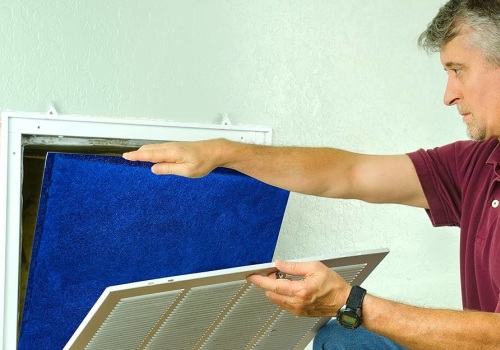The Controversy Surrounding Ionizers
Ionizers have been gaining traction in recent years as a way to improve indoor air quality. These devices claim to remove harmful particles from the air, leaving behind cleaner and healthier air for you to breathe. However, there has been some debate surrounding the use of ionizers, with some experts claiming that they may actually be detrimental to your health. So, what's the truth about ionizers? Are they really bad for you?What is an Ionizer?
Before we delve into the potential risks of ionizers, let's first understand what they are and how they work.An ionizer is a type of air purifier that uses electricity to create negative ions. These ions attach themselves to particles in the air, such as dust, pollen, and smoke, causing them to become heavy and fall to the ground. This process is known as ionization. Ionizers are often marketed as a more natural and chemical-free alternative to traditional air purifiers. They are also said to be more energy-efficient and cost-effective in the long run.
However, the controversy surrounding these devices lies in their potential health effects.
The Potential Dangers of Ionizers
One of the main worries about ionizers is that they produce ozone as a byproduct of the ionization process. Ozone is a gas that can be hazardous to our health when inhaled in high concentrations. It can irritate the lungs and cause respiratory problems, especially for those with pre-existing conditions such as asthma or COPD. In fact, the Environmental Protection Agency (EPA) has set a limit for ozone levels in indoor environments, stating that levels should not exceed 0.05 parts per million (ppm). However, some ionizers have been found to produce ozone levels well above this limit, which can pose a risk to our health. Another concern is that ionizers may not be as effective as they claim to be.While they may remove some particles from the air, they may also produce harmful byproducts such as ozone and other chemicals. This can actually worsen indoor air quality and potentially cause more harm than good.
The Importance of Proper Maintenance
Like any other appliance, ionizers require regular maintenance to function properly. If not cleaned and maintained regularly, they can become a breeding ground for bacteria and mold, which can then be released into the air. This can lead to respiratory issues and other health problems. It's also important to note that ionizers are not a one-size-fits-all solution for improving indoor air quality.They may be effective in removing certain particles from the air, but they may not be able to remove all types of pollutants. For example, they may not be effective in removing volatile organic compounds (VOCs) or gases.
The Bottom Line
So, is it bad to be in a room with an ionizer? The answer is not a simple yes or no. While ionizers may have some benefits in improving indoor air quality, they also come with potential risks that should not be ignored. If you do choose to use an ionizer, make sure to properly maintain it and monitor ozone levels in your home. However, if you are concerned about the potential risks of ionizers, there are other ways to improve indoor air quality without using these devices.Some options include using natural ventilation, keeping your home clean and free of dust and allergens, and investing in a high-quality air purifier that does not produce ozone.




